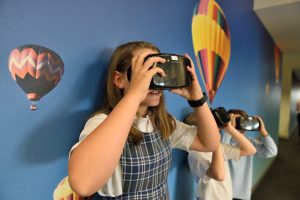Numeracy & the young gifted child
Once parents have realised their young child is learning more quickly than others of the same age – or that their child seems developmentally ahead of others, they start to think more deeply about what learning is needed to support their child and how do they manage this.
Numeracy is one of the main areas they wonder about. Some young gifted children seem to have a natural inclination towards mathematics. However others don’t and this doesn’t mean they are not advanced in their learning, just that their advanced natural ability or interest is not in this topic — or not yet.
Some young gifted children find maths really fascinating and learn the concepts and skills really quickly and want more. It is useful in planning how you respond to your child’s interest in maths by looking at the bigger picture about numeracy. Numeracy is defined as being able to use appropriate mathematical knowledge, skills, understanding, intuition and experience whenever they are needed in everyday life.
Immediately this directs us to view maths knowledge as a tool, not as an end in itself. That is, maths knowledge allows us to explore aspects of our world, to solve problems and manipulate objects or ideas, to create new objects or develop new ideas, concepts or whole new fields of knowledge.
If you were to look at the maths curriculum you would see that it includes at least 5 distinct areas.
- Measurement (quantity, time, mass, temperature, etc)
- Spatial awareness (shapes, properties of shape, 2D & 3D shapes, connections between shapes, etc)
- Data and chance (collecting and ‘reading’ data/numbers, what might or might not happen – absence of quantity –chances that something will happen – etc)
- Number – counting, adding, subtracting, matching the number-symbol to a collection of objects, etc
- Patterns (recognise all sorts of patterns and be able to predict ongoing patterns, codes, etc.)
Children who are showing a special interest in maths can be offered extensive opportunities to play and have experiences in all these areas of maths. Start with simple, hands-on activities or everyday objects and move on to more complex maths ideas as they are ready.
Learn the names of shapes – if your child is interested – move onto less well known shapes – talk about 3D shapes – how shapes fit together or don’t. Find shapes in the world around you – how many shapes can you see in a house, car, etc. Talk about real-world use of, or problems with shape. Why is a rocket the shape it is? What shape is a shoe – why is it this shape – could we have a different shape?
If unsure what your child understands – offer a more complex idea and if it is meaningful then continue – if not leave it for the moment and re-introduce another time. This helps them start to build concepts in these areas alongside the vocabulary that goes with it.
Writing mathematical symbols; e.g. numbers, doing maths work sheets or solving number problems on paper only matter as a skill, once a child has enough hand control for this to be a positive or useful activity for them. So parents don’t need to worry about trying to build skill in this aspect too early – it will come when the child is capable of or really wants this skill.
While mathematics is generally a more precise language than words there is still a place and need to encourage children to be creative with maths. Play with mathematical ideas and be imaginative.
- Would Humpty Dumpty have not fallen off his wall if he was a different shape?What shape would be the best? Why?
- What if we only had 10 numbers to count with?
- Let’s sort these objects out in a different way, by – colour, or shape, or usefulness, or safe/dangerous, etc.
- What are the chances of – a dog bumping into another dog – why?
Above all enjoy and share with your children, the power and capacity of maths to help explain our world.
Dr Anne Grant
Born to Soar
Please contact Born to Soar if you wish further information or have questions on your child’s learning journey.



